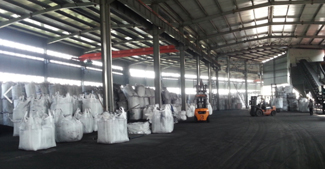
Through petroleum processing, crude oils are transformed into a form of energy used to power automobiles and machines. Petroleum coke, which is carbon-based material, is one product of this process. Carbon is added to the petroleum coke in refineries' coker unit, along with metals, inorganic inorganic compounds and limited quantities of sulfur. It can also be used to produce aluminum or steel. Also, it can be burned to create energy. But its use was criticized for the potential negative effects it could have on both human health and environmental conditions.
Aluminum is the primary use of calcined Petroleum Coke. Anodes for the aluminum smelting are made of this material. The material can also be used in production of carbon mortars, graphite blocks and other products. Additionally, it is a substitute for coal in the electric arc furnace (EAF) steel production.
A major use for calcined oil coke is as a fuel in electric power plants. This reduces the dependency on fossil-fuels which can harm the environment or cause climate change. This solid substance is a black color and is mostly composed of carbon. Because it does not react to water, and can't be absorbed into organisms, coke is a non-polluting fuel.

The development of an advanced system for utilizing waste heat has led to a project that aims at reducing the impact on the environment from calcining petrol coke. This system uses a fluidized electrothermal bed calciner with a boiler/combustor, and generators to generate electricity and heat.
Gas Technology Institute is bringing this technology to the market in a partnership with Superior Graphite Company. Other equipment manufacturers have also been involved. The GTI-SGC-electro-thermal fluidized bed system will be installed at a GTI-SGC demonstration plant in Hopkinsville, Kentucky. This technology can also be applied to other energy-intensive industries.
In developing Asia Pacific, the increase in manufacturing and infrastructure construction is fueling this market. As this region hosts a huge population, the need for energy-intensive products such as cement, petroleum coke and clinker is also high. This product is also being encouraged by the emergence of government initiatives like 100 Smart Cities or Housing for All.
A growing market for cement is also fueled by an increase in coal demand. But strict environmental laws aimed at cutting greenhouse gases could slow the growth of this industry. Green Petroleum Coke (GPC) and Calcined Petroleum Coke (CPC) are made from fossil fuels, which have high levels of carbon. Governments are now focusing their efforts on finding alternative energy to help limit carbon emissions.

Write a Message